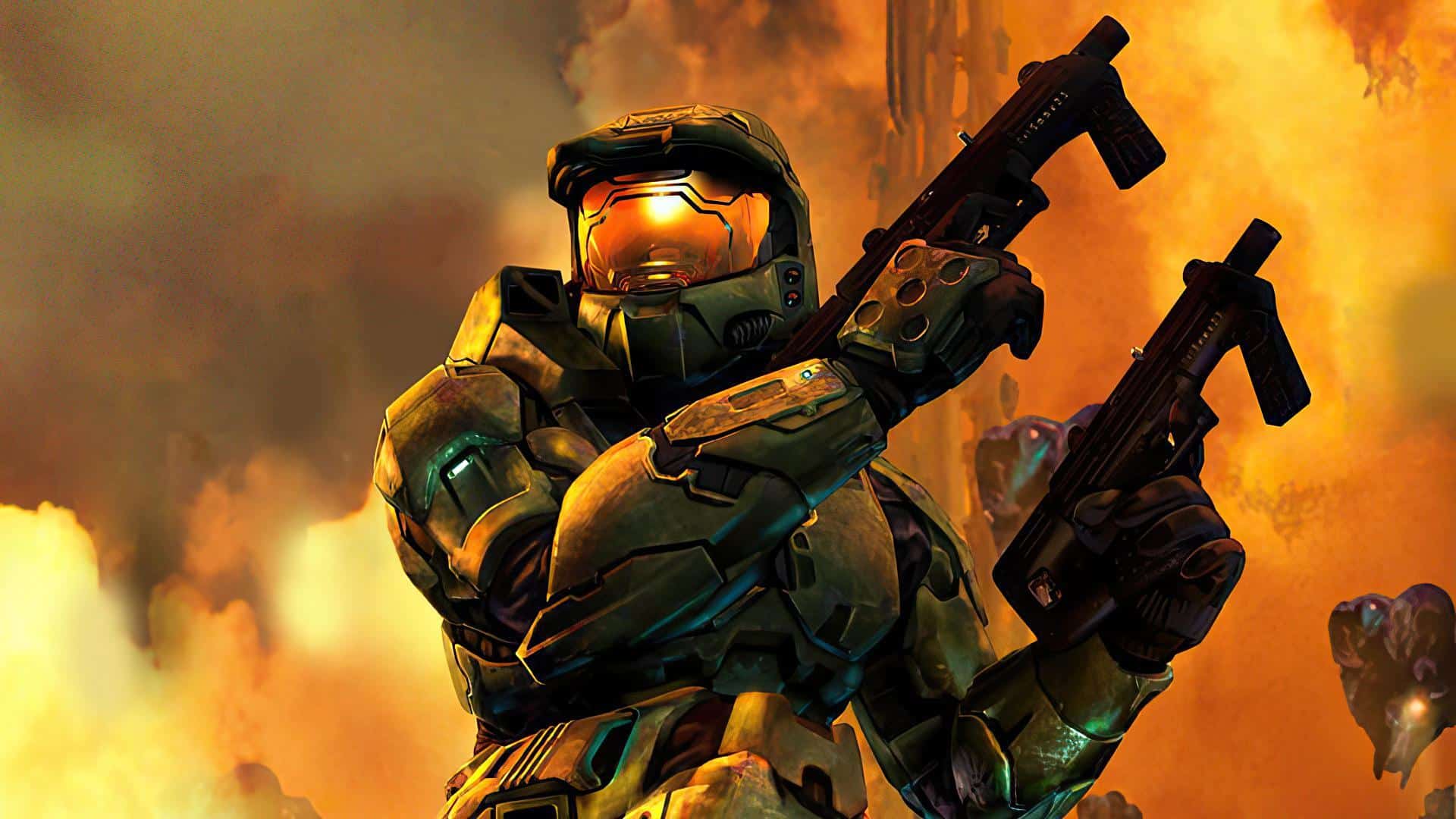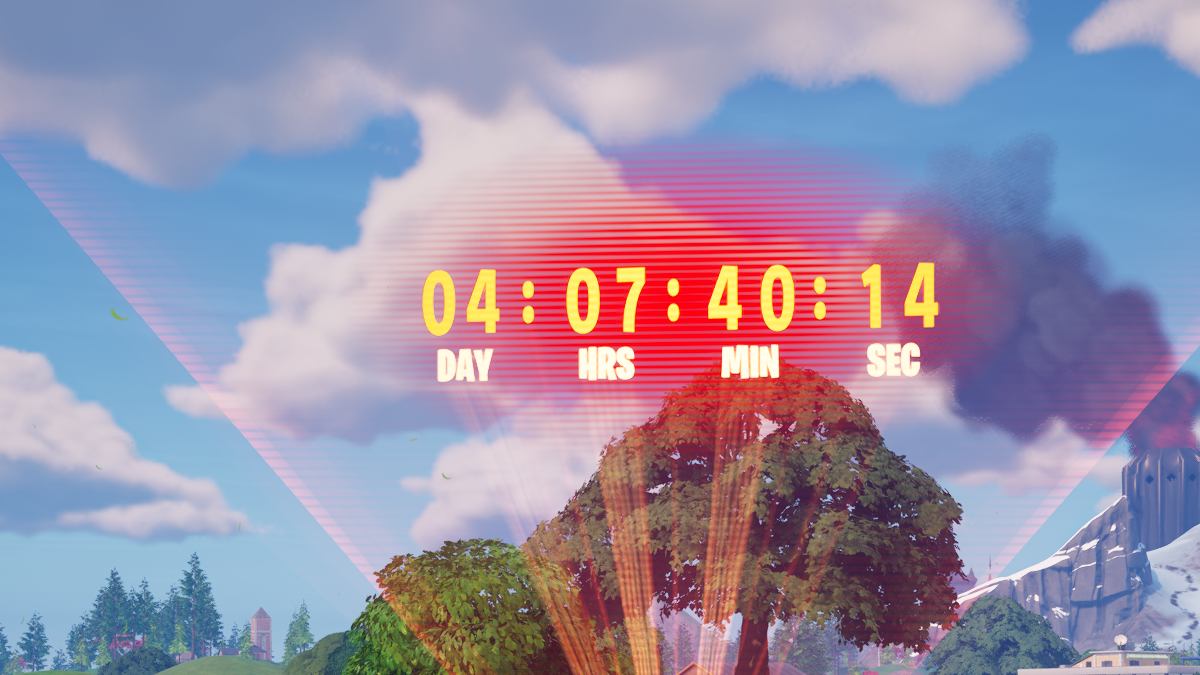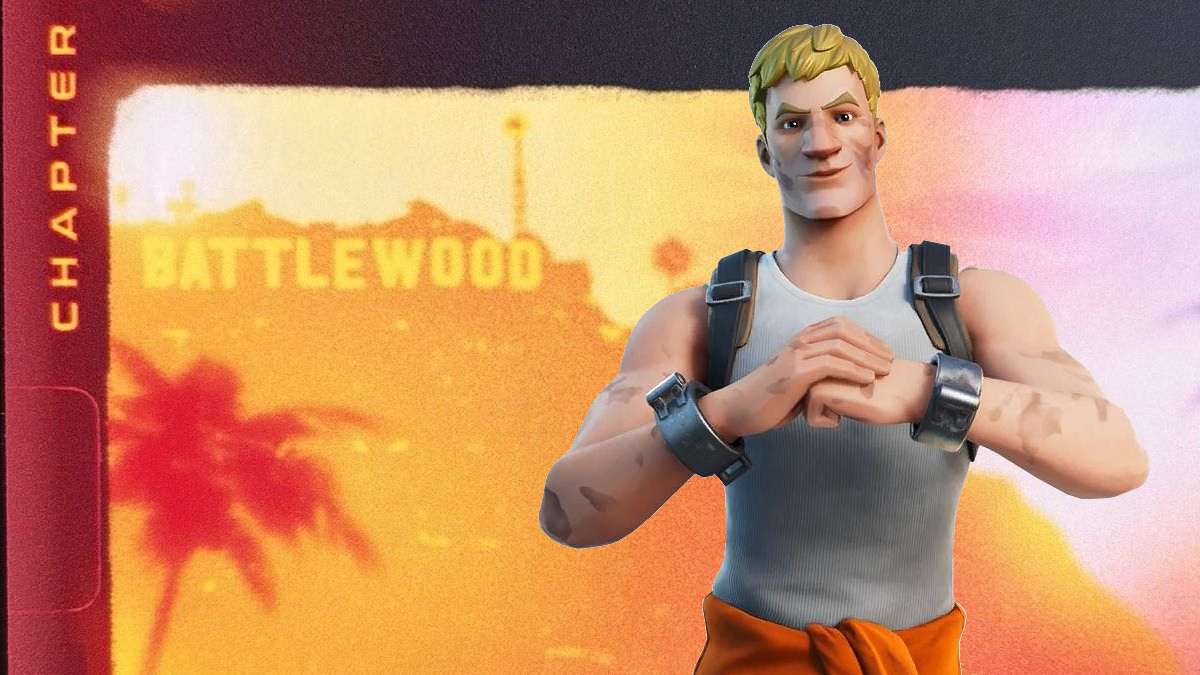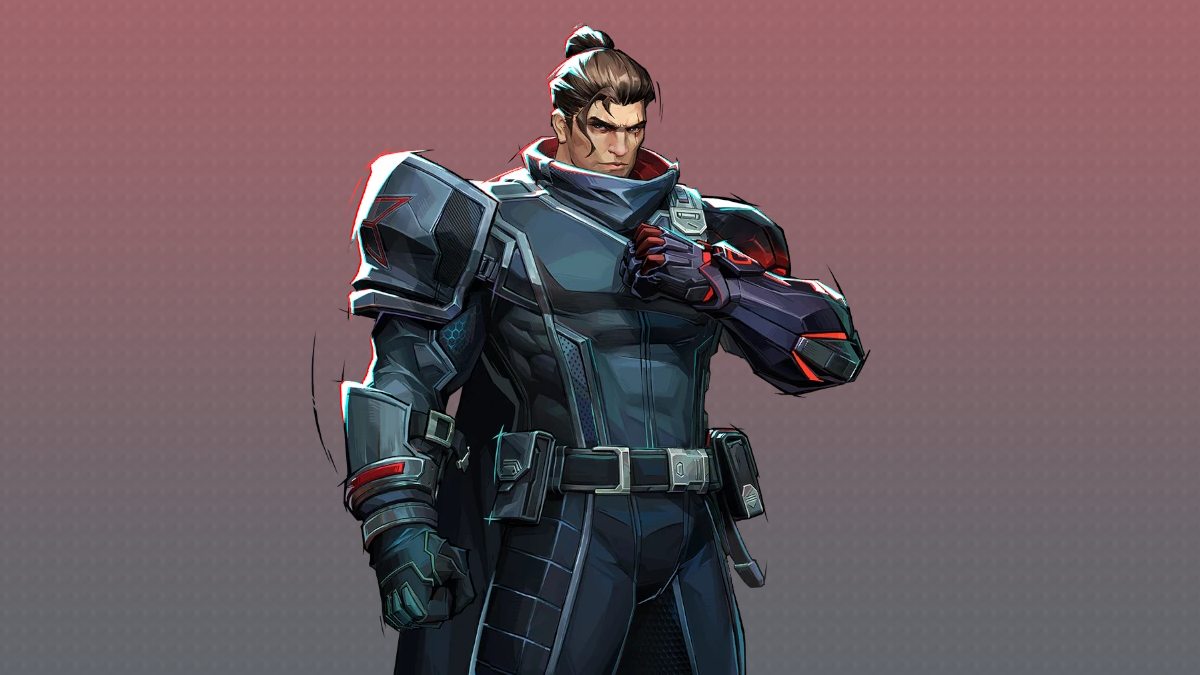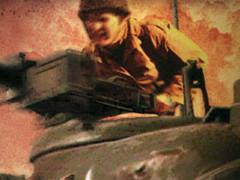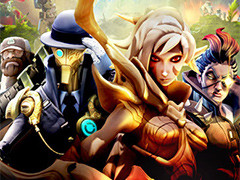You can trust VideoGamer. Our team of gaming experts spend hours testing and reviewing the latest games, to ensure you're reading the most comprehensive guide possible. Rest assured, all imagery and advice is unique and original. Check out how we test and review games here
Microsoft reckons Halo, its most important first-party franchise, can eventually be as big as sci-fi behemoth Star Wars. Sound like a story beamed in from far, far away? Halo Studio lead producer Jason Pace, a man we caught up with at a recent Halo Wars event held deep within the bowels of Westminster’s Cabinet War Rooms, is as serious as the Master Chief himself. Read on for a glimpse into the future of one of gaming’s most beloved and popular franchises.
VideoGamer.com: You’re the lead producer at Halo studio. What’s the role of Halo studio at Microsoft Game Studios?
Jason Pace: Microsoft owns the Halo IP and the Halo franchise. The Halo studio within Microsoft floats above all of our projects, whether it’s the Bungie first-person shooters or Halo Wars with Ensemble, or the novels that we do, or any of the other projects that we have going on, they’re all centrally managed by that agency. We’re charged with guarding the integrity of the story and franchise.
VideoGamer.com: What led to the decision to make the first non-Bungie Halo game a console strategy game? It seems like a move that’s not immediately obvious.
JP: Ensemble is very passionate about Halo and they had some really great ideas for how it could happen. We are always as a franchise looking for new ways to tell Halo stories. Super convenient that we had Ensemble handy! I would say that the Halo universe and the Halo FPS games actually set the stage fairly well for an RTS. Think about it. You have a number of different units all with very specific skills and abilities. And so taking all of them and moving them over and letting folks experience it in another way is really interesting. Also, Halo fans love to blow things up, they love firepower, they love to experiment with weapons, they like giant explosions. If you think about, in the Halo FPS games you’re playing as one person with one weapon, imagine what you can do when you’re playing with 40 people with 40 different weapons and you’re seeing massive explosions all over the place. It lends itself very well to the Halo fan.
VideoGamer.com: What led to the decision not to have Master Chief in the game? Is there a danger that because he’s not in it that some fans are going to say, well I’m not going to bother?
JP: Certainly there are Halo fans that identify very strongly with Master Chief just like there are Halo fans that identify very strongly with online first-person shooter multiplayer play. I don’t believe those folks represent the majority of the fans of the franchise. I think the fans of the franchise, we’ve seen time and again that they want to go out and they want to read the books, they want to experience everything they can, they write their own fan fiction, they take their own movies and make their own stories. And so I think they’ll be very open to experiencing the game in the new way.
VideoGamer.com: So this game really is for fans that like the story and lore.
JP: I think if we accomplish the goals we set out to you’re going to see new people coming to the franchise who haven’t experienced it before. It’s certainly my hope that we’re going to have lots of Ensemble fans and lots of RTS players try us out to see if we’ve succeeded. So I believe that that’s a critical segment of our audience. By and large as the Halo studio, our first duty is to the millions and millions of Halo fans that we have, so we’re very excited about bringing them over as well. But I think we’re definitely going to see a blend. And certainly as we went through development of the project we considered RTS players absolutely equal, in terms of wanting to give them a great experience, to the Halo FPS fan.
VideoGamer.com: You’ve said Halo is the most important first-party franchise Microsoft has. In terms of endurance, is Halo going to be around for many, many years to come? Is it something we’re going to see on Xbox consoles for decades?
JP: We as a studio view Halo as our Star Wars. We want it to become that culturally pervasive. Our vision for what the franchise can be extends far beyond just first-person shooters that are appealing to a certain kind of audience. This is a vast universe, it extends back thousands and thousands of years, it’s huge, many different worlds, races that we haven’t even met yet. And so we view the future of the franchise in the same way that we would view any cross-cultural entertainment franchise property, which is we hope to tell many different stories in many different ways, capture the hearts and minds of new generations as we go forward. So absolutely we are committed to this franchise.
VideoGamer.com: To get that real mainstream appeal you’re looking at a movie. What’s the latest on that?
JP: We haven’t committed to anything specific yet so there’s nothing I can really talk about at the moment, but certainly you can think of, we’re open to any great way to tell the Halo story, whether it’s movies or television or multimedia in some other way, that’s something we would determine given time and opportunity. We’re certainly looking at ways to make the franchise as relevant as possible to the widest number of people.
VideoGamer.com: Going back to Halo Wars, the Covenant is in the single-player campaign but you can’t play them. Why did you decide not to give them their own campaign?
JP: For the story that we’ve written it makes sense to play through as the UNSC. Absolutely as we went through development, the number of great ideas that we simply just didn’t have the luxury of pursuing, that was certainly one of them, and something you may or may not see us really pursuing in the future. There are lots of us who feel passionate about taking Halo Wars as you see it today and expanding it and making it richer and deeper and broader, and so that’s certainly one of the ideas you might toss around if you’re thinking about how best to do that. Of course we haven’t committed to anything yet. I think if you play through the single-player campaign, much like the FPS games, it’s really a story about heroism, individual and group, of the human race. So it makes sense in this context to play through as the humans.
VideoGamer.com: What ideas have you got for supporting the game post-launch?
JP: I can’t say anything specific because we haven’t committed to anything but I can say that pretty much anything you can think of we would love to do! How’s that?
VideoGamer.com: Fair enough! Given that Ensemble has shut up shop now that the game is nearly out, who will handle the post-launch content?
JP: There’s nothing I can comment on about post-launch content like expansions or DLC or anything like that. I’m sure you’re familiar that Ensemble has started another company with many of the people from Ensemble, and we’re actually working with that group of people to support critical fixes and releases for Halo Wars moving forward. Certainly we would love to work with them in any capacity moving forward, they’re just an awesome bunch of guys. Hopefully we will be able to partner with them again, whether it’s on this project or something else.
VideoGamer.com: With Halo Wars and with Halo 3: ODST, the Master Chief has taken a back seat. The ending of Halo 3 left things pretty open. Have we seen the last of the Master Chief?
JP: I would never say you should count Master Chief out! That’s all I have to say about that!
VideoGamer.com: Can Halo ever be as popular as Star Wars do you think?
JP: Depending on how you measure it we have a very good shot. If you look at how the franchise has grown, and just the number of people who are aware of it, we’re certainly comparable to the major cultural touchstones, or at least well on our way. The games have generated over $1 billion of revenue. That puts them in the same class as a triple-A movie franchise. They’ve been around now for almost an entire generation of players, and we’re moving into new generations of players. If you just look at how the franchise is growing, it’s actually diversifying. Our recent books that have released in the last several years, several of which have been on the New York Times best-seller list, for example. Assuming we continue to carry the torch and do what’s right by the franchise it’s only going to continue to expand. If we carry on into even more genres and new ways of telling those stories, we’re going to pick up a much different kind of fan.
VideoGamer.com: You mention new genres. We’ve seen first-person shooters, and now a strategy game, and we’re going to see another first-person shooter with ODST. What new genres could support a Halo game? It doesn’t strike me as a party-centred Wii mini-game style title…
/https://oimg.videogamer.com/images/996a/halo_3_still_ad.jpg)
JP: That I think comes back to… and this is where you run the real risk of releasing a game that makes people go, what the heck were you thinking?! That can start to kill your franchise. That’s actually why our studio exists. I can tell you that if you could think of a game that would work with a party atmosphere that would not gut the franchise, or milk it, we would think about it, seriously. But again, whether that’s an arcade game or casual title, or any kind of party game, we would need to take an element of the universe that made sense. You are never going to see, and I have no problem saying this, you’re never going to see a dancing Master Chief game. It’s not going to happen. However, could you maybe see a dancing Grunt game? I don’t know, I mean Grunts are funny and they’re weird, and it wouldn’t necessarily destroy the fiction to do something like that. Certainly I’m never going to just impose that decision on my team, I don’t have that luxury. But I don’t think we would ever go into a genre that didn’t make sense. That’s something we all feel really strongly about. And so we would have to evaluate the subject matter, the kind of story we were trying to tell, along with whatever game we were trying to tell it in. If a dancing Grunt game made sense? Maybe it would! I don’t think it does necessarily, at the moment, but you never know.
VideoGamer.com: Halo has traditionally been a hardcore franchise. Do you see it appealing to non FPS and RTS fans?
JP: I think that is our big challenge. When we talk about becoming a cultural touchstone, something that is really just embedded in popular culture, it’s important eventually that we transcend and grow. The challenge is how do you do that without alienating the folks who made you what you are today? You will always see us very much carrying the torch of our core franchise. The FPS for us is the heart and soul of Halo and we feel strongly about preserving that experience. I believe that Halo Wars is also going to become, it certainly has the potential to become, another one of those really fundamental ways that people experience the universe. So we will exorcise a lot of restraint and a lot of control over how we move that piece forward. That said I still think there’s lots of room to expand and become more relevant to folks. The answer may not necessarily be changing the core FPS so that it’s more newbie friendly. That might not be the right answer.
VideoGamer.com: There’s been a lot of speculation about a PC version of Halo Wars. Is that something that is never going to happen?
JP: You can’t ever say never. But I can say we have no plans right now to do it. You would run into the same problems moving Halo Wars to the PC that you run into porting a PC strategy game to the console. The controls are fundamentally developed for a game pad and the mechanic has been altered and evolved, as we like to think of it, significantly so it’s paired with the controls very tightly. If you move that over to the PC it’s not going to feel like the same game unless you do some really fundamental re-altering. So at the moment we have no plans.
Halo Wars is due out exclusively for Xbox 360 on February 27.
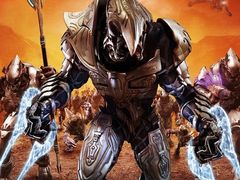
/https://oimg.videogamer.com/images/d80a/halo_wars_49.jpg)
/https://oimg.videogamer.com/images/d480/halo_wars_47.jpg)
